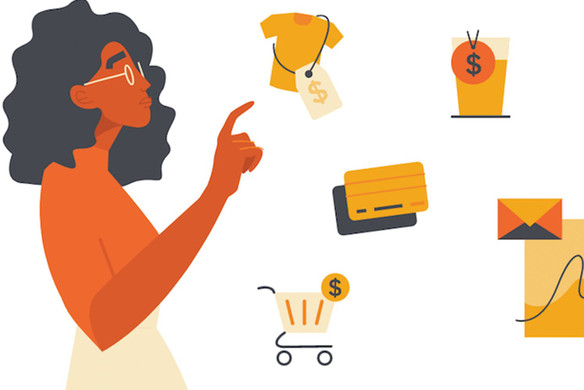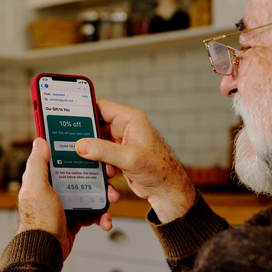Table of contents
Whether events are your business or you’re hosting an event to build your brand or support a business objective, it’s more difficult than ever to make your event stand out. According to Meeting Professionals International, your event is one of more than 18 million in the U.S. each year.
With so many choices, how can you get people to your event? The (perhaps unexpected) answer is by making the whole experience as easy as possible for them. It should be effortless for event-goers to buy tickets and enjoy your event once they arrive.
“Attendees can buy coffee with their phone, split a payment with friends within an app, and close their bar tab remotely,” says Gilad Horev, VP of Product, Platform at Eventbrite, in a new report on The Future of Event Spending. “As expectations change, event creators need to provide the same level of access and convenience.”
Here are three ways that event attendees’ expectations are evolving — and how you can make sure your event rises to the challenge.
1. Event-goers will expect to buy tickets on their favorite sites and apps
You know better than to expect event-goers to come to your box office to buy tickets in today’s mobile-everything world. But if you’re still requiring them to find your ticketing page to buy tickets, you’re falling behind.
Event-goers expect your event to find them, not the other way around. That means making sure your event is showing up in their favorite sites and apps, like Facebook, Google, and Instagram. But that also means making it easy for event-goers to buy tickets on that same site without being redirected to your ticketing page.
It may sound minor, but allowing people to purchase tickets directly on these apps can dramatically boost your event’s bottom line. For example, events that sell tickets directly on Facebook drive an average of two times more sales and free registrations than events that redirect to a ticketing page, according to our data.
2. Event-goers won’t bring cash — or even wallets — to your event
Cashless payments are already on the rise. In a 2018 Eventbrite survey of 1,000 event professionals, two-thirds said they were planning to use cashless payments in 2018.
If you haven’t embraced cashless payments at your events yet, your attendees have probably noticed (and even taken their complaints to social media). But your brand isn’t the only thing at risk — you’re also losing money. Eventbrite data shows that attendees who use cashless RFID payments spend twice as much as attendees who don’t.
“As a business owner, you want a payments partner that you trust to keep up, so that when paying with a wristband or a phone at an event is the norm, you’re not left behind,” says Gilad Horev.
3. Event-goers will expect you to know their spending preferences
Today, you can identify event-goers by what ticket type they buy — and that’s about it. But soon, attendees will expect you to know their specific spending habits, so you can craft an experience that feels customized for them.
Here’s just one example of what this might mean in action:
-
Today:
A customer receives an email about your event and buys the least expensive general admission early-bird ticket. While you appreciate every one of your ticket buyers, you might assume this attendee wasn’t very valuable based on the ticket revenue.
-
Tomorrow:
Though the same customer bought the least expensive ticket, you now know that once they were at the event, they also bought a T-shirt for their favorite performer and rounds of drinks for their friends all night long. Because you now have full visibility into these payments, you realize this attendee actually spends even more than your VIP attendees do.
Once you recognize which attendees are your most valuable customers, you can develop a strategy to both reward them and draw in more of them. Not only that — they’ll expect you to.
Stay on the cutting edge of event spending.
These improvements will make it more likely for attendees to come to your event, and more likely for them to come back once they do. But there’s more you can do to future-proof your event payments strategy.
For more insight into how event spending will evolve over the next bunch of years, read Square and Eventbrite’s free report: The Future of Event Spending: The Event Executive’s 5-Year Plan.
About Eventbrite
Eventbrite is the world’s largest ticketing and event technology platform. The company, which has processed $10 billion in gross ticket sales since inception, powered millions of events in 180 countries and territories in 2017. The Eventbrite platform enabled hundreds of thousands of event creators to bring a variety of live experiences to life for more than 50 million fans in 2017 — with cost-effective, impactful tools, technology, and services.
![]()











